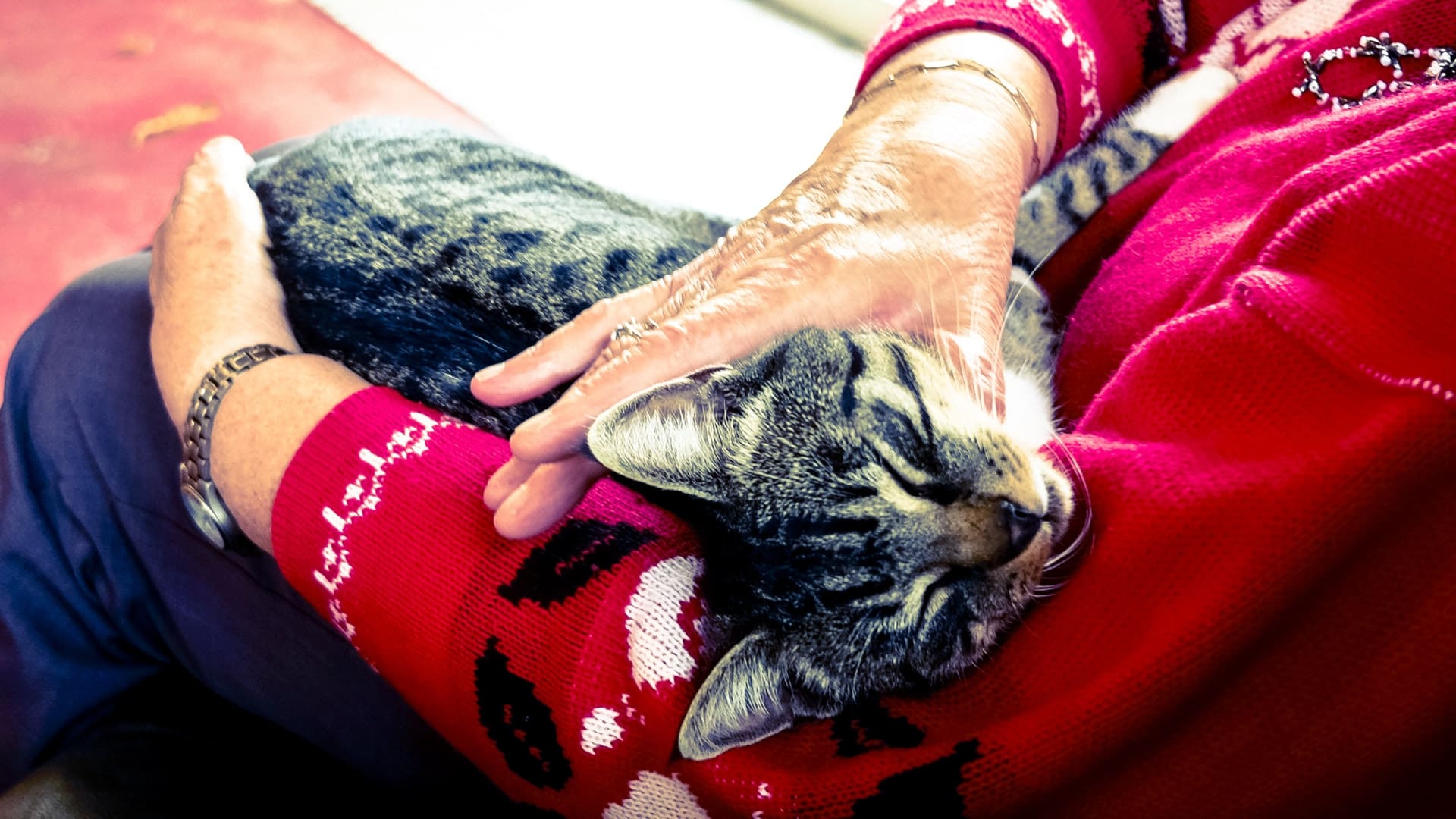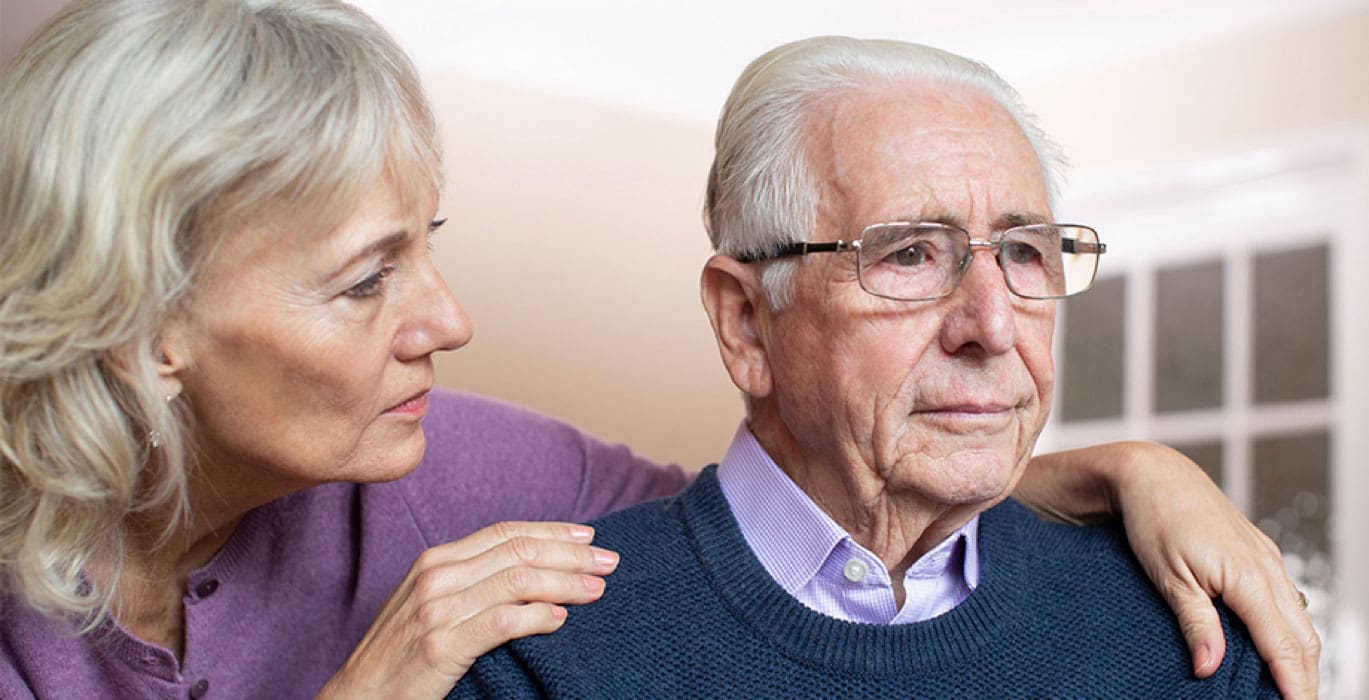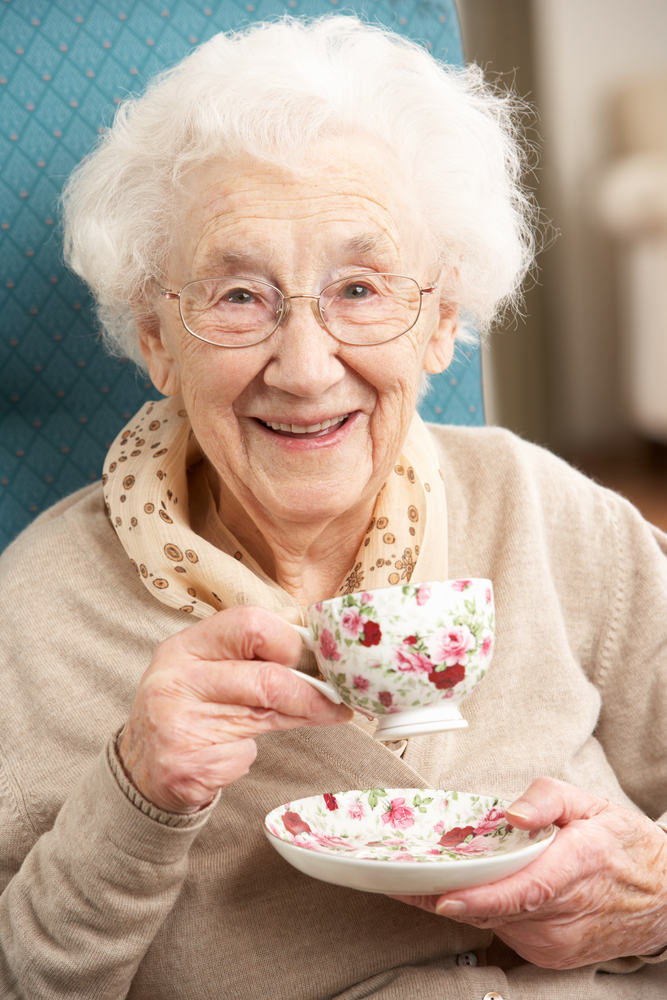Pet therapy can benefit older people in so many ways. Find out more about these benefits and how live-in care supports older people living with pets.
Pet therapy is a relatively new concept in elderly care. However, the more research is conducted into it, the more benefits are being discovered.
In this blog, we’ll take a look at why pet therapy can be so beneficial for improving quality of life. We’ll also explain how live-in care enables older people to continue living with beloved pets, even as they move into a formal care arrangement.
What is pet therapy and how is it beneficial for older people?
The definition of pet therapy is rather broad.
Essentially, this term refers to any activity whereby a person interacts with a trained or domesticated animal in a supported environment. This is usually in order to achieve a certain goal relating to their physical, social, cognitive or emotional well-being.
There are many reasons why this form of therapy is so effective. Pets and other trained animals can be:
1. Emotionally calming
Spending time with animals lowers blood pressure/heart rate and reduces the risk of heart disease. Just minutes spent with a pet enables the brain to release oxytocin (otherwise known as the ‘love chemical’).
2. Nostalgic
Animals are likely to have played an even more significant role in our lives in days gone by. So, pet therapy could take your loved one back to their youth or remind them of a beloved pet from their earlier years.
3. Part of a daily routine
If your loved one has kept a pet until recently, time with animals might well be a major part of their preferred daily routine. Promoting familiarity in this way is especially important for people with dementia.
4. A companion
Spending most of your time with a pet (as is often the case in retirement) means you build up strong emotional bonds. Pets make fantastic companions, especially for people with limited verbal capacity.
5. A sign of independence
Keeping a pet is a major responsibility that takes time, dedication and organisation. When this responsibility is removed, older people can come to feel that an element of their independence has gone.
How live-in care allows older people to keep beloved pets
Having to give up cherished pets is one of the most emotionally challenging aspects of moving into residential care.
95% of pet owners consider their animal to be a fully-fledged member of the family (Time). However, most residential care arrangements require tenants to give up their pet before moving in.
Sadly, a high number of perfectly healthy pets are put to sleep due to this requirement.
Things work differently with live-in care providers like The Good Care Group. We firmly believe in the many benefits pets bring for older people and put all the arrangements in place to support your loved one in continuing to live with their beloved animals.
Your loved one’s dedicated, live-in care team will make sure all the needs of your loved one’s pets are met. They’ll handle all responsibility for feeding, cleaning, walking etc., as well as visits to vets and the replenishing of pet-related supplies.
In this way, your loved one can continue to enjoy all the benefits set out above, even as they move into a formal care arrangement.
Ensure your loved one stays supported in their own home with their beloved pets as companions; speak to The Good Care Group team about our live-in care services.



